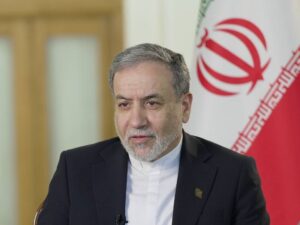
Published 03/05/2024 14:19
President Joe Biden, at a fundraiser in Washington, D.C., to mark the start of Asian American, Native Hawaiian and Pacific Islander Heritage Month on Wednesday, called on ally Japan close to the United States, as “xenophobic”, just weeks after praising the alliance between the two countries at a state dinner. During the reserved event, Biden argued that Japan and India, as well as China and Russia, would perform better economically if they adopted a more welcoming policy on immigration.
“You know, one of the reasons our economy is growing is because of you and many others. Why? Because we welcome immigrants,” Biden said, according to an official White House transcript released on Thursday (2). “The reason – think about it. Why is China so economically stagnant? Why is Japan having problems? And why Russia too? Because they are xenophobic. They don’t want immigrants. Immigrants are what make us strong.”
Biden’s criticism comes as he faces domestic political pressure over his own immigration policies, with the US government dealing with an influx of migrants and facing criticism from Republicans over its handling of the situation. The president’s speech is controversial in several ways, after all, his country has some of the most dramatic images of disrespect for the human rights of immigrants crossing the Mexican border.
In response to Republican and Democratic outrage over historic migrant surges at the southern border, the president passed the most restrictive immigration legislation in years. That legislation has stalled in Congress, but now Biden is considering whether to use his executive power to single-handedly enact a harsh crackdown on asylum.
He also argues around the economic situation of countries that is not compatible with reality. Except for Japan, the other countries are considered by international organizations to be the fastest growing economically, despite the adversities they face, such as economic sanctions and wars. India and China are also countries with little dependence on immigration, considering the high demographic rate of their young and active population.
Japan, the main American ally of this group, is the only one with a strong population aging trend and an economy that is not only stagnant, but also declining. Japan has long faced a demographic crisis, and its declining population has had significant impacts on the country’s workforce and economy. Despite this crisis, Japan and other East Asian countries have been reluctant to adopt immigration policies to bolster their populations.
Observers suggest Biden is trying to balance his stance on immigration, especially in light of growing political pressure to adopt more restrictive policies at the southern border. Meanwhile, the president is also seeking to differentiate himself from his predecessor, Donald Trump, whose approach to immigration was widely criticized as discriminatory and xenophobic.
Ambiguous diplomacy
This was not the first time Biden had made similar criticisms. In an interview with a Spanish-language radio station in March, he called Japan, China and Russia “xenophobic,” saying they do not want the presence of non-native people in their territories.
These remarks were surprising, especially since Biden has made a point of strengthening ties with Japan and India since taking office in 2021. Just three weeks earlier, Japanese Prime Minister Fumio Kishida was at the White House for a state dinner , during which both countries celebrated their “unbreakable” partnership. The president also hosted Indian Prime Minister Narendra Modi for a state visit last year, and both countries are part of the Quad security group, an alliance to contain China.
The White House sought to downplay the president’s comments, arguing that Biden was defending the fundamental role of immigration in the United States. “Our allies know very well how much the president respects them, values their friendship, values their contributions,” said National Security Council spokesman John Kirby.
Meanwhile, immigrant rights advocates hope Biden’s statements during the campaign event indicate a possible reconsideration of some of the toughest immigration proposals. However, the concrete policies that the Biden administration will adopt remain uncertain, while the immigration debate continues to be a central issue in US domestic and foreign policy.
So far, neither Japan nor India have responded to Biden’s comments. Unlike Russia and China, they are important countries in US diplomatic and security strategies.
Source: vermelho.org.br

